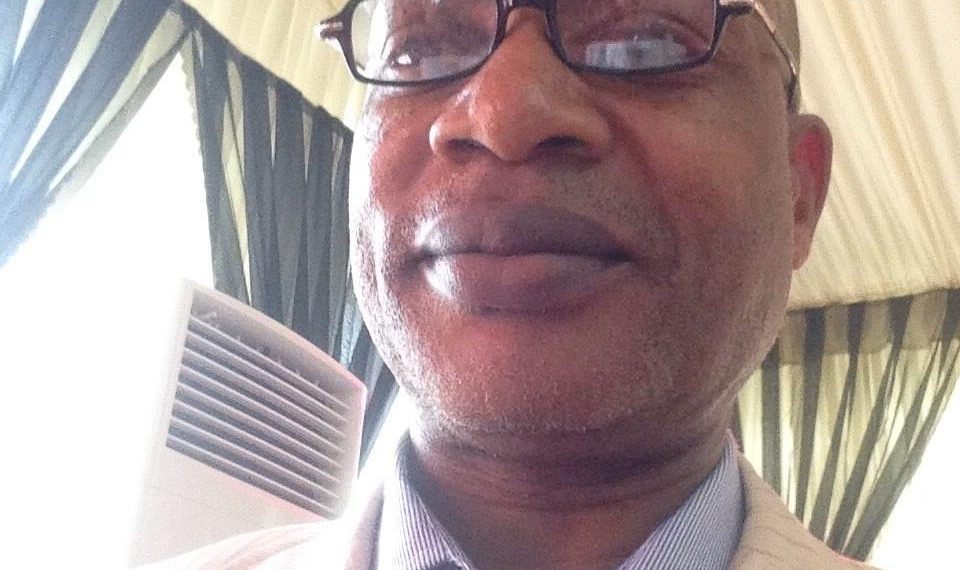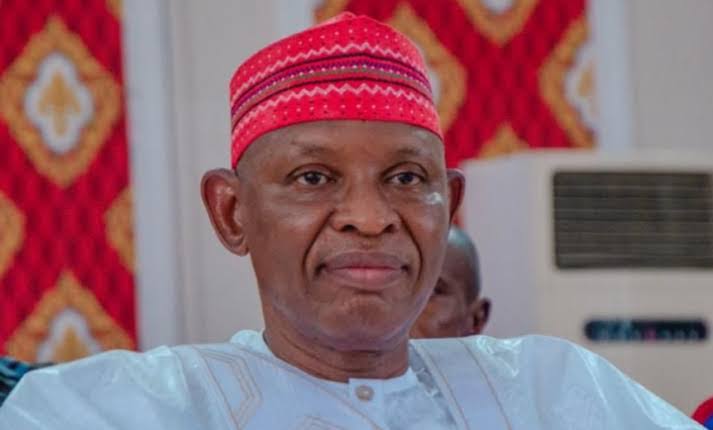By Ehichioya Ezomon
Pre-celebration on November 11, 2018, of first anniversary of the Armistice – what is known as “the 11th hour on the 11th day of the 11th month” that ended First World War on November 11, 1918 – John Hubbel Weiss, associate professor of history at Cornell University, in an opinion piece, “WWI ‘fake news’ made truth the first casualty,” published on news.cornell.edu on November 7, 2018, writes that the current notion of “fake news” can be tied back to this period, when the public began mistrusting the press narrative about the real state of the war.
Weiss says: “Widespread mistrust of the press as the purveyor of ‘fake news’ began with the Armistice of 1918. In the case of Germany, the press maintained a triumphalist approach, suppressing stories about the military disasters of the summer of 1918 and running uninterrupted editorials that victory was near. Throughout the war troops, who had just suffered massive losses of men and territory, were dismayed to read optimistic accounts of battles unrecognizable to those that had participated in them. As the saying went, in portraying wars in the press, truth was the first casualty.”
Similarly in an April 22, 2022, article, “The ICRC vs. Fake News: Setting the record straight in the First World War,” published on blogs.icrc.org, researcher, Cédric Cotter, writes, “The term “fake news” has been a constant presence in the media for several years now. The deliberate spread of false information seems to have become one of the great perils of our time. Yet the issue is nothing new.
“In fact, all conflicts give rise to propaganda, in which fake news is mixed in with rumours, information becomes a real weapon of war and the facts seem to be entirely relative. The First World War was no exception and many historians have taken an interest in the spread of rumours about atrocities perpetrated by the enemy, brainwashing and how propaganda was received by civilians at the time.”
The above quotes serve as a backdrop to the topic at hand, which’s the matter of Olawale Rasheed, spokesman to Osun State Governor Ademola Adeleke, allegedly sponsoring “fake news” against Femi Oyetola, son of the Minister of Marine and Blue Economy and former Osun Governor Adegboyega Oyetola, over which the Department of State Services (DSS) has invited Mr Rasheed for interrogation.
Rasheed’s denied the allegation, and promised to make himself available for the DSS investigation. But rather than stick to his bravado, he’s approached the Federal High Court in Osogbo, capital city of Osun State, “for the enforcement of his fundamental human rights,” in an originating summons against the DSS and Femi, seeking three reliefs, including a restraining order on the DSS from “inviting, arresting or detaining him.”
Are Nigerians going to witness a classical case of “The Guilty Are Afraid,” as depicted in a 1957 thriller novel by British writer, James Hadley Chase? The issue surrounding Rasheed borders on “fake news” set on criminal extortion! So, why did he – after denying sponsoring the fake news against the son of his principal’s “political enemy number one” – suddenly develop cold feet, and want the court to stop the DSS from probing the damaging allegation of Femi extorting directors (for what purpose?) in his father’s ministry?
The Nation first reported on March 24 that the DSS invitation to Rasheed followed an Abuja-based blogger’s news report, “claiming that Femi was extorting directors of the Ministry of Marine. Subsequently, the blogger was arrested by operatives of DSS and she reportedly confessed that Rasheed sponsored the report.”
What’s hard in Rasheed honouring the DSS summons to prove his innocence? Unless he’s something to hide, appearing before the DSS would afford him an auspicious moment to confront the blogger, who alleged that he sponsored the “fake news” published on her blog!
Now that the Rasheed “fake news” extortion of Femi is before the Federal High Court in Osogbo, the trial judge should give accelerated hearing to the restraining order on the DSS from inviting, talkless of arresting or detaining Rasheed.
As extortion isn’t a plaything to be bandied – moreso against Femi Oyetola for accusingly perpetrating the act in the ministry that’s on his father’s watch – the court shouldn’t put the public in suspension via unnecessary and frivolous adjournments orchestrated by any of the parties, as the case strikes at the heart of fighting corruption by the Bola Tinubu administration.
The Rasheed episode comes at a time fake news rules the media, particularly social media, which exploits free speech to disinform, misinform, ply falsehood, and flat-out lies ravenously consumed by members of the public, who relish bad news due to envy, or parochial interest.
Fake news is malicious propaganda aimed at damaging the image and reputation of those targeted. Because the average human being wants to read, listen or watch bad news about their neighbour, bad news, laced with fake news, sells like hot cakes. That’s why the “new media” traffics fake news to drive ratings and for monetary gains.
The disadvantages of fake news far outweigh its advantages in terms of unpending lives, and socio-economic and political order that can lead to inevitable consequences, such as family feuds, intra and inter-tribal conflicts, civil strifes and cross-border skirmishes and wars.
Across many countries, fake news have been sowed in attempts to sway votes, and influence the outcomes of elections. An example is the United States of America, where former President Donald Trump falsely claimed he won the 2020 General Election, with his supporters storming the Capitol on January 6, 2021, to disrupt Congress from certifying Joe Biden as President. There’re fears that fake news can scramble the November 2024 poll!
!In Nigeria, fake news almost derailed the 2019 and 2023 presidential elections. The opposition, using social media, made heavy weather of alleged massive electoral malpractice by the ruling party in cahoots with the Independent National Electoral Commission (INEC) – even as they claimed to’ve won the same “flawed” elections – which they failed to prove at the election petitions courts.
Earlier on in his administration (2015-2023), there’s a series of fake news about President Muhammadu Buhari’s incapacitation, and death while on medical treatments abroad, and the cloning of a “Jubril of Sudan” as his replacement at the Aso Rock Villa seat of power in Abuja, Nigeria’s capital city. Also, President Tinubu – even as a candidate – reportedly died several times overseas, and/or underwent periodic procedures to replace “batteries that keep him alive.”
During the 2023 campaigns, fake news purveyors not only “manipulated and distorted videos and speeches” attributed to Tinubu, but also predicted that he won’t be sworn-in as President, as the Military would takeover at his inauguration; and as President, he won’t dare to visit any country for fear of arrest over alleged drugs offences. But Tinubu’s inaugurated on May 29, 2023, and has visited several countries around the globe thereafter.
Yet, ahead of the next general election in 2027, fake news saturates the polity, this time to undermine and demarket government’s diverse strategies – already showing encouraging signs – designed to ameliorate the economic pains admittedly inflicted on the citizens following Tinubu’s removal of fuel subsidy and floating of the Naira.
Social media “remains the platforms of choice for the purveyors of fake news, anti-state groups, anarchists, secessionists, terrorists and bandits,” says Alhaji Lai Mohammed, Nigeria’s former Minister of Information, who recalls that while in government, his ministry uncovered 476 online publications dedicated to spreading fake news against the Buhari administration.
Mohammed, the Managing Partner of Bruit Costard, a lobbyist and public relations firm, spoke lately in Lagos at an event to mark the 90th birthday anniversary of Nobel laureate, Prof. Wole Soyinka, entitled, “The Media in the Age of Disinformation,” as first reported on March 23 by the News Agency of Nigeria (NAN).
Noting the far-reaching consequences of fake news, disinformation and misinformation, Mohammed, an advocate of social media regulation, says “fake news has become exponential through the use of Artificial Intelligence and deep learning techniques to create highly realistic fake or manipulated videos, audio recordings or images.”
“The consequences of disinformation and misinformation are far-reaching,” Mohammed says. “They undermine democratic processes, sow discord within communities, and pose significant threats to public health and safety. Today, even the media is at the risk of losing its credibility because of the proliferation of fake news on social media.
“Therefore, the media, as custodians of the public trust, must take decisive action to combat the scourge of disinformation and misinformation,” and “prioritise the integrity of information over profit motives and take proactive measures to detect and remove harmful content from their platforms.”
To arrest the disturbing trend, Mohammed recommends that social media platforms and other intermediaries amplifying disinformation and misinformation should be held responsible, and be checkmated “through robust regulatory frameworks to curb the spread of false information while safeguarding freedom of expression.”
In terms of targeting individuals, Mohammed shares how “fake news” – alleging he’d stolen $1.3bn from the coffers of the Ministry of Information (between 2015-2018) and stashed it overseas – nearly ruined his 40-year-old marriage. The gist in a nutshell: Mohammed, on an official assignment in Lagos in 2018, retired to his house, and to bed. But his wife woke him up past midnight, “as there were some serious issues to discuss.”
“I could not fathom what was that urgent or serious to warrant being woken up at this time of the night,” Mohammed says, adding that the accusation from his wife was “a bombshell” narrated to him in Yoruba language, but roughly translated thus:
“Daddy (wife addressing him), death can come knocking at any moment, please let me also, as your wife, be a signatory to your overseas account in ‘Ali Financial,’ which contains 1.3 billion dollars.”
Mohammed says he didn’t believe his wife could take, hook, line, and sinker the fake story in circulation, crediting humongous sums of money in overseas accounts to government functionaries/ministers under President Buhari’s administration.
“I spent the next two hours or so, sweating to convince my wife that there is no iota of truth in the allegation,” he says. “I had to fetch a calculator and reproduce the Federal Appropriation Act for 2015, 2016, 2017 and 2018 in the middle of the night and explain to her why it is simply preposterous for me to have 1.3 billion dollars in a foreign account.
“I explained to her that there is no year my capital budget exceeded N5 billion, which then, at about N400 to a dollar, was just 12.5 million dollars. I explained that, even if I managed to divert every kobo of it to my personal account, it will take at least, 104 years to save the sum of 1.3 billion dollars being peddled that I stole.”
Mohammed adds: “My wife insisted that the whole world believed the story and that her friends had as a result, besieged her with all kinds of requests. She said every effort on her part to deny the existence of this foreign account only succeeded in depicting her in the minds of her friends as a selfish, greedy and uncaring friend. Is my wife truly convinced of my innocence? The answer is in the wind!”
To the question at hand: Many Nigerians have suffered Mohammed’s kind of experience from fake news purveyors! Is Femi Oyetola about to bear the brunt of fake news reportedly engineered by Olawale Rasheed now standing accused in the eyes of the public and the courts? Can Rasheed free himself from the reported fake news against Femi?
In any case, Rasheed – and others in his shoes – should beware, as going forward, there maybe no hiding place for purveyors of fake news, as several countries have regulated – and many others, including Nigeria, are making moves to regulate – social media activities within the bounds of law, with or without infringement on citizens’ rights to free speech. A word is enough for the wise!
Mr Ezomon, Journalist and Media Consultant, writes from Lagos, Nigeria





